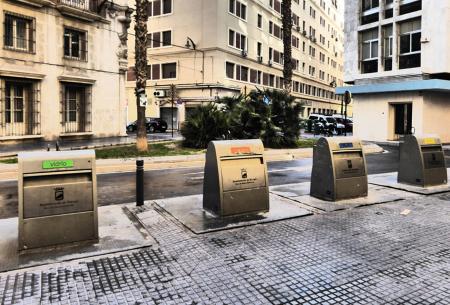
Resource description:
Assessment methodology for identifying opportunities to make local urban waste management more sustainable and resilient.
Author/Contact:
TURAS
Expert contact: Pilar Zapata Aranda
Requirements:
- In order to make a successful transition, it is key to count with decision and policy makers for transport service, urban and regional planning, at the national and municipal levels as well inter-municipal (regional) level.
Advantages:
- The demands of urban populations for greener and smarter waste management systems make indispensable the constant implementation of more sustainable solutions for waste management planning. This includes integrated approaches towards collection, recycling
- The proposed Integrated Sustainable Waste Management (ISWM) is a concept which recognises three important dimensions which all need to be addressed when developing or implementing a sustainable solid waste management system. The dimensions include the sta
- The scope of the ISWM assessment sets the boundaries of what will be assessed, specifying what to include and what to leave out. It focusses on three key decision points: the area of study, the type of waste to include and whether to include both liquid a
Constraints:
- The waste management system in a city is of vital importance to environment protection as well as public health and well-being of citizens. This is due to it potentially provides economic benefits related to the possibilities of reusing and/or recycling w
- In contrast, waste management systems’ failures have significant negative consequences for the community, the environment and future availability of resources. Many cities today are negatively affected by waste management failures that can be very diffe
Uses of this resource:
The huge economic and industrial development over the last decades, combined with the rapid increase of urban populations, has put extreme pressure on many cities’ solid waste management systems. Even though progress has been made, there is still work to do in order to identify and implement sustainable solutions for waste collection, recycling, treatment, and disposal. Experience over the last 30 years has shown that it is not enough to rely on technical solutions and that a more integrated approach is required.
Additional information:
WHO SHOULD BE INVOLVED?
FACILITATORY (PUBLIC) BODIES:
energy and waste department; planning and development department; environmental and sustainability department; health and social well-being department; policy development department; socio-economic development department; strategic planning department
LOCAL TASK FORCE:
local of regional authority; professional expert; business; ngo; community group
SUITABLE FOR:
dense inner city; (sub-)urban communities; urban region
MAIN NECESSARY RESOURCES ARE:
community trust; local knowledge; expert knowledge; monetary investment; political back-up; space; legal legitimization; institutional set-up
Licence:
- Free, no licence
Development stage:
- Full, working product